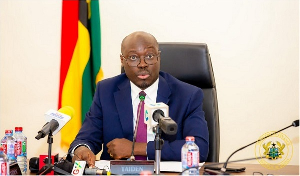A two-day capacity building workshop for quality assessment experts of the ECOWAS Regional Accreditation System (ECORAS) on the International Organisation for Standardisation (ISO17021-1) has been held in Accra.
The programme, which was funded by the European Union and implemented by the United Nations Industrial Development Organisation (UNIDO), attracted experts from 12 West African countries.
The workshop was to train representatives of the ECOWAS Accreditation Bodies (ABs) on the requirement of the ISO/International Electrotechnical Commission (IEC) standards to support their accreditation of certification activities.
It was also to train candidate assessors of the ABs on the requirement of the standards, specifically requirements linked to the conducting of assessments.
The Director General of the Ghana Standards Authority (GSA), Prof. Alex Dodoo, in his welcome address, said the workshop was to secure the quality infrastructure for the sub-region since a lot of accreditation and testing bodies operating here were with little or poor national control.
“At the end of this workshop, we will be speaking the same language when it comes to quality and there will be a lot of trade between West African countries,” he said.
The Deputy Minister of Trade and Industry, Mr Carlos Ahenkorah, indicated that contemporary consumers were demanding high quality environmentally-sustainable and safe products.
In view of that, he said, the Ministry was in the process of establishing the Ghana National Accreditation Services (GhaNAS) to serve as an accreditation body for conformity assessment activities in the country.
Mr Ahenkora further disclosed that Ghana spent an estimated one million dollars annually to obtain accreditation services from outside, a cost which had been passed on to consumers and which should not be allowed.
The UNIDO Representative to Ghana and Liberia, Mr Fakhruddin Azizi, said the regional accreditation had experienced encouraging results over the previous years.
He said about 17 certificates of accreditation had, so far, been issued to the sub-region, which gave a clear indication of better presence in the African and International accreditation bodies.
General News of Thursday, 14 March 2019
Source: ghananewsagency.org













